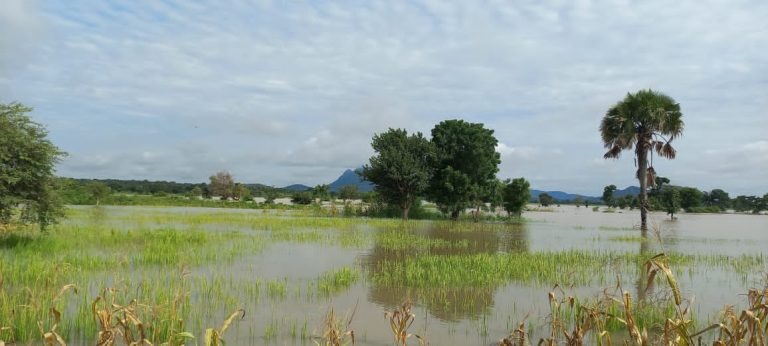As the impact of climate change is increasingly felt across the world including in Nigeria, an environmental justice and sustainable development organisation, Human and Environmental Development Agenda (HEDA Resource Centre), has called upon Nigerians and Africans to take action now to help the most vulnerable, as well as to cut back on those human activities that contribute to global warming and climate disasters.

Currently, 27 states in Nigeria are experiencing massive devastating floods that have claimed hundreds of lives, destroyed thousands of communities and displaced millions of people from their homes. Similar scenarios are being witnessed in other parts of the world like Pakistan. These severe flood incidents directly hit at the food production capability of the countries as possibly millions of hectares of farmlands are submerged, and their crops destroyed.
In Nigeria, these devastating floods are happening just a few weeks to the 2022 harvest period and may very likely increase food scarcity and escalating cost of foods.
Speaking with journalists on the Climate Caravan that went round some flood-prone communities and some streets of the metropolis in Lagos State of Nigeria to sensitise and create awareness about climate change and the oncoming COP27 in Egypt, the Executive Secretary of HEDA Resource Centre, Sulaimon Arigbagbu, explained that the world is changing and climate change is real, therefore urged citizens and government to take responsibility and act now to reduce their ecological footprints on the planet.
He lamented: “Despite the early warning from Nigeria Meteorological Agency (NiMet) and the Nigerian Hydrological Services Agency (NIHSA) to the government on flooding, the governments all levels did not do enough, and the consequences will be felt by everybody as there will be food scarcity next year unless the government intervenes.”
He called on the government to aggressively help those communities and people affected by this flooding, especially small holder women and youth farmers who have lost so much. He urged government to also deepen the climate insurance coverage for farmers in the country.
According to messages carried by members of the Climate Caravan during their visit to Ikeja and Maryland areas of Lagos, human activities such as use of fossil fuel that release excessive carbon dioxide, the cutting down of trees and the inappropriate use and disposal of wastes especially single use plastics and bags are the major reasons why the impact of climate change is becoming more devastating.
One of the banners reads “Climate change is natural, but climate disasters are manmade”, another reads “The climate is changing, because you and I refuse to change”, while still another reads “Take action, demand climate justice now”. The banners encourage people to reduce, reuse and recycle their wastes especially plastics and on the need to plant more trees as trees are the lungs of the earth.
The women of Ilaje, Bariga when receiving the caravan in the community, conducted a tour of their community to identify the areas where flood water inundated them. The women talked about tidal fluctuation from the lagoon which causes their community to flood for three months in the year irrespective of the quantum of rainfall.
The women identified inadequate drainage, poor waste disposal and the failure of the government to enforce some environmental laws in the area.
Similarly, the women of Labinjo, Mushin conducted the caravan around their communities as well and lamented on the perennial problem of flooding. Women in both communities agree that the citizens have a huge role to play in proper waste management, while also calling on government to help them with drainage de-clogging, dredging of canals and lagoon as well as providing critical amenities such as portable water which both communities lack.
Meanwhile, Arigbabu also charged the newly inaugurated National Council on Climate Change to hit the ground running and bring better coordination to the country’s climate change response as well as facilitate states and local governments to key into the policy direction of the federal government with regards to climate change adaptation and mitigation.
He concluded: “As we the world march to COP27 in Egypt, Africans must raise their voices to demand for climate justice. It is a fact that Africa is the worst impacted by climate hazards, yet the continent has the least contribution to greenhouse gas emission either to historical or par capital emissions.
“Those countries that have gone ahead to pollute the earth and precipitated the climate disasters we all have now, have an unfulfilled obligation to help Africa and other developing parts of the world to adapt to climate change and also cut down their emissions under the Nationally Determined Contributions to emission reduction mechanism of the Paris Agreement.”
The Climate Caravan is an initiative of the African Activists for Climate Justice Project in partnership with Oxfam and PACJA and funding support from the Netherlands Foreign Affairs Ministry.
